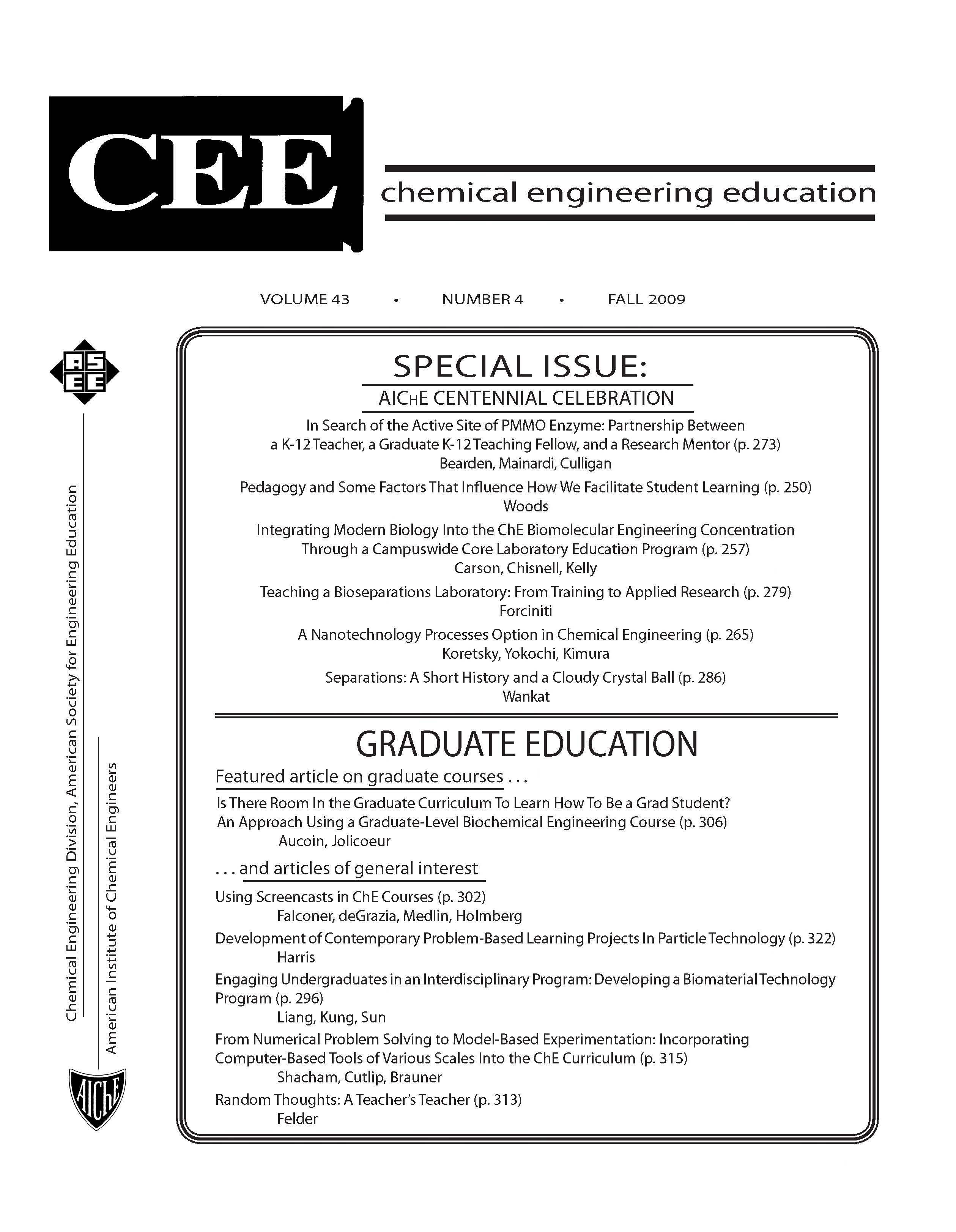Is There Room in the Graduate Curriculum to Learn How To Be a Grad Student? An Approach Using a Graduate-Level Biochemical Engineering Course
Abstract
Undergraduate and graduate engineering training differ significantly. The former looks to established protocols and formulas to design and control processes while the latter often involves questioning established protocols and formulas to better suit and describe phenomena. Although we do not dispute the benefits of practical hands-on approaches, we have seen over the years that at the undergraduate level laboratory experiments can lead students to justify why everything goes wrong. The ability to justify an outcome that deviates from an expected result does not ensure that a student can operate a similar yet different system or that they have learned to apply concepts independently. Simply, it is not the same as evaluating a result driven by a hypothesis. The following describes an approach to a graduate course on fermentation and modeling (GCH6301/02) offered by the department of chemical engineering at the École Polytechnique de Montréal. This course takes a hands-on learning approach, which allows the students to gain experience in the field of cell culture/fermentation engineering that is readily applicable to an industrial setting. This course differs from traditional undergraduate lab courses in that students are not expected to repeat an established experiment but are guided and encouraged to define a research problem or deficiency in the state of the art, design experiments and address these issues within a limited time-frame using limited resources. Consequently, in addition to reaching specified course objectives, students get a real look at a research based graduate degree in the area of traditional biochemical engineering in terms of problem synthesis, experimental design, analysis and defense. In essence, they learn to be a graduate student.


